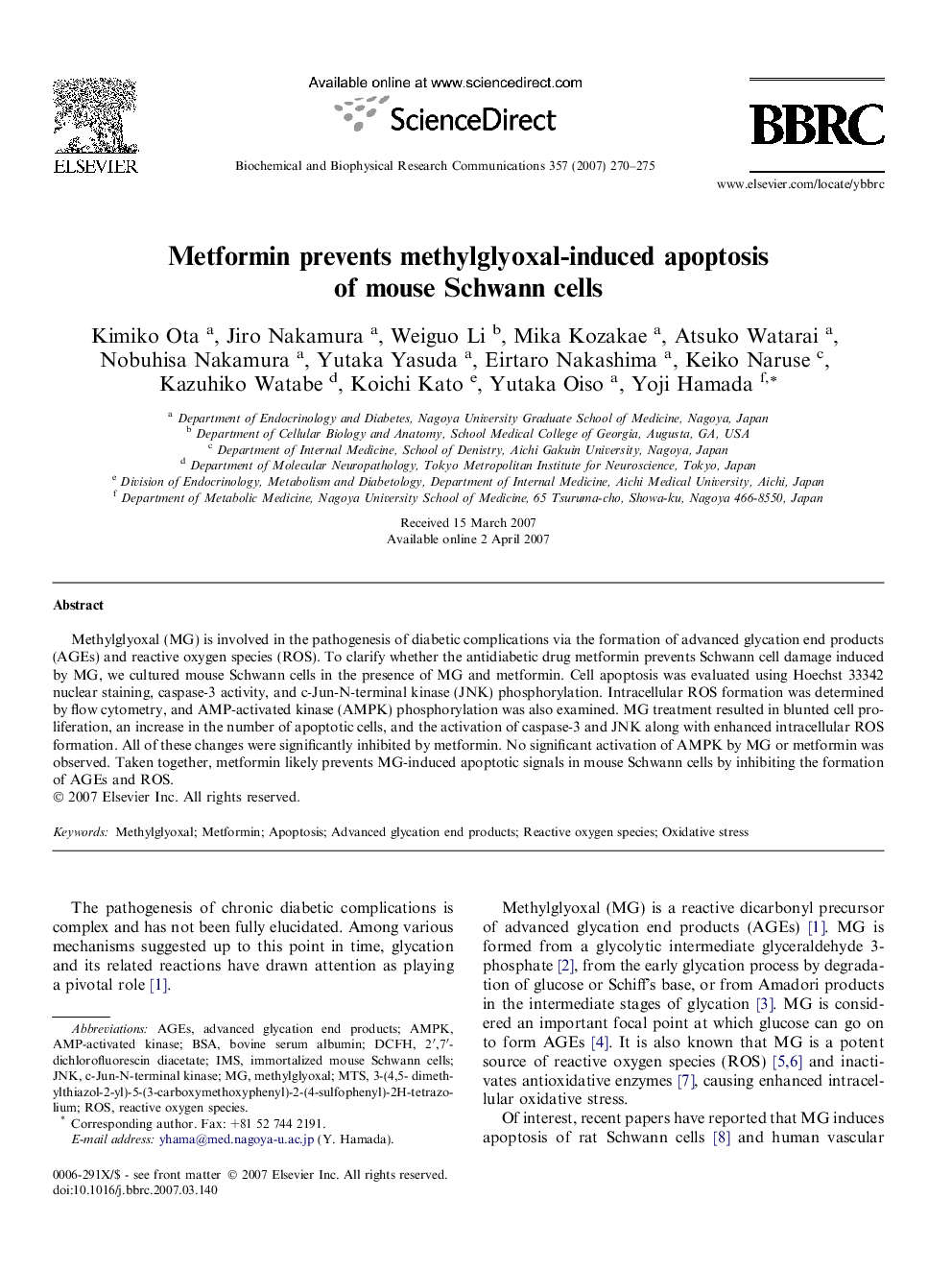| Article ID | Journal | Published Year | Pages | File Type |
|---|---|---|---|---|
| 10767392 | Biochemical and Biophysical Research Communications | 2007 | 6 Pages |
Abstract
Methylglyoxal (MG) is involved in the pathogenesis of diabetic complications via the formation of advanced glycation end products (AGEs) and reactive oxygen species (ROS). To clarify whether the antidiabetic drug metformin prevents Schwann cell damage induced by MG, we cultured mouse Schwann cells in the presence of MG and metformin. Cell apoptosis was evaluated using Hoechst 33342 nuclear staining, caspase-3 activity, and c-Jun-N-terminal kinase (JNK) phosphorylation. Intracellular ROS formation was determined by flow cytometry, and AMP-activated kinase (AMPK) phosphorylation was also examined. MG treatment resulted in blunted cell proliferation, an increase in the number of apoptotic cells, and the activation of caspase-3 and JNK along with enhanced intracellular ROS formation. All of these changes were significantly inhibited by metformin. No significant activation of AMPK by MG or metformin was observed. Taken together, metformin likely prevents MG-induced apoptotic signals in mouse Schwann cells by inhibiting the formation of AGEs and ROS.
Keywords
Related Topics
Life Sciences
Biochemistry, Genetics and Molecular Biology
Biochemistry
Authors
Kimiko Ota, Jiro Nakamura, Weiguo Li, Mika Kozakae, Atsuko Watarai, Nobuhisa Nakamura, Yutaka Yasuda, Eirtaro Nakashima, Keiko Naruse, Kazuhiko Watabe, Koichi Kato, Yutaka Oiso, Yoji Hamada,
